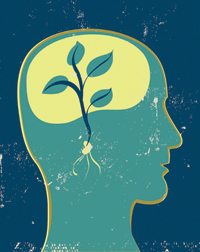Samuel Jones summarises ‘Expressive Lives’, which looks at how to gain a commitment to facilitating the personal expression of culture and creativity.

In July, Demos published a collection of essays called ‘Expressive Lives’. It is based on the idea that through culture we find our place in the world, and that the choices we make in relation to what culture we consume and what we create help us to connect with others who share our opinions, ideas and beliefs. Culture is also a space in which we generate new values and responses to the world around us. The idea of ‘expressive life’ was first put forward by Bill Ivey in his book, Arts Inc. Ivey was Chair of the National Endowment for the Arts under Bill Clinton, and went on to lead the transition team for the arts and humanities for Barack Obama. He argues that seeing cultural and creative engagement as expression helps us to approach policy-making – and the values attached to cultural and creative engagement – in a different way. Culture and creativity seem to be at a remove from issues such as social cohesion or security, but thinking of them as expression makes it clear that they are much more important than might at first appear.
In his essay in the pamphlet, Ivey talks in terms of “heritage” and “voice”. Heritage is the nexus of signs and symbols that constitute our sense of belonging, continuity community and history. Voice is the realm of individual expression where, as he puts it, “we can be autonomous, personally accomplished and cosmopolitan”. Heritage “reminds us that we belong”, and voice offers the promise of what we can become.
Thinking in terms of “expressive life” challenges current structures of cultural policy, which should be about far more than simply the provision of cultural services. Cultural and creative engagement is a central and often formative part of our public realm. They are concepts to represent and reflect, rather than provisions to ration out.
A BROAD VIEW
Chapter authors in ‘Expressive Lives’ ranged from the directors of major institutions, like the Royal Opera House and the National Portrait Gallery, to voices representing aspects of our cultural lives such as online creative production and the kind of music created using different technologies. They respond to the idea of ‘expressive life’ examining what it means in their particular sphere of activity and how it relates to their experience. Expression runs throughout all these forms, but it is rare that they are seen in the same light.
Historically, intellectual property is seen in commercial or industrial terms. Ministers concern themselves with how long an individual or company has the rights to profit ensuing from an idea or cultural product. Intellectual property is not often thought of in the same way as a castle or a museum, or vice versa. While respecting the commercial rights of individual performers and artists, the idea of the expressive shows that intellectual capital must be thought of as being social as well as fiscal. It is part of what makes up our heritage, and equitable access to that is a basic right of citizenship.
SPACE TO THINK
Working with a commitment to facilitate and enfranchise expression would also help policy-makers to think differently about the role of cultural institutions – be they local theatres or museums, major national institutions such as the Royal Shakespeare Company, or online such as YouTube. They are democratic organs that generate and reflect expression and should be thought of not only as contributing to an economy, but also as necessary parts of the public realm. On the one hand, this points to a new role for arts and cultural institutions and allows them to talk about their value on their own terms, rather than making the case in relation to economic and social agenda. On the other, it presents a challenge to existing concepts of expertise and provision. As important spaces in which people can access the culture produced by others, either in the past or present, cultural institutions have the responsibility of ensuring that beliefs and attitudes are represented equitably.
The right and opportunity to create must equally be spread across society. This requires ensuring that the material from which to create and experience new expressions of value and belief is freely available both in terms of access and recognition. In this reckoning, concepts that privilege one cultural form over another – for example, the shibboleth of ‘high’, versus the stigmatisation of ‘low’ culture – go out of the window. The ability to create and experience expressive forms is as basic a democratic right as a cross in a ballot box or freedom of speech.
Expressive Lives is an attempt to change the terms of policy debate. It is important to do so now not as an attempt to win arguments come the spending review, but to ensure that we have a settlement between the cultural sector and policy that truly recognises just how important culture and creativity are to our lives. Every day we encounter a greater intensity of cultural forms than ever before. From the posters we see for films, to the food we eat and the cultures we experience in the media and online, they open us to new values and new experiences. Cultural policy must respond to this reality and enable expressive lives.
Samuel Jones is a researcher for the think-tank Demos. Expressive Lives, edited by Samuel Jones, is available for download.
W http://www.demos.co.uk/publications/expressive-lives
This week Sam read Gore Vidal’s ‘Washington DC’, spoke at a conference on conservation in Salzburg (and took the chance to buy an Austrian cookery book and look at the Cathedral), and has signed up to record a home-taping album at hmtpng.com.



